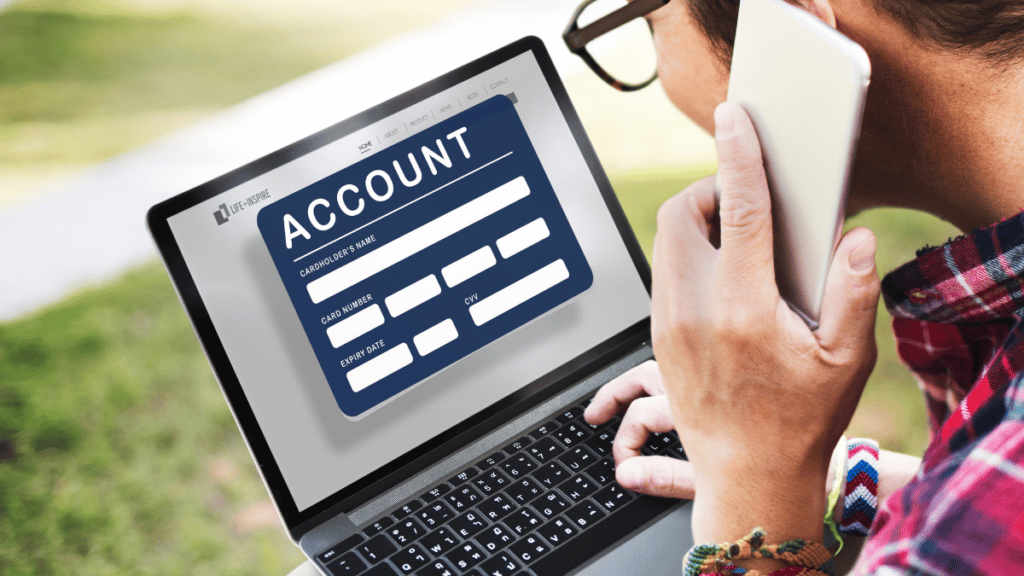Money problems can sneak up on anyone, but ignoring warning signs only leads to bigger issues. You don’t need to be an expert to see when your spending needs attention. Keep an eye out for these signals so you can change your habits, and keep your money working for you.
Opening New Bank Accounts To Dodge Overdrafts

If your account runs dry, you might think opening another one will help. But shifting money around just adds to the mess. It makes things harder to track and brings more bills and stress instead of real relief.
💸 Take Back Control of Your Finances in 2025 💸
Get Instant Access to our free mini course
5 DAYS TO A BETTER BUDGET
Knowing the Price of Every Drive-Thru

You don’t need to be a health nut to spot when you eat out too much. If you know the price of your usual order without thinking, that’s a sign your spending has become a habit. Food should fill you up, not drain your cash every time you pass a drive-thru.
“Treat Yourself” is a Weekly Ritual

Treating yourself now and then is fine. But if every Friday turns into another “I deserve this” buy, costs add up fast. It’s easy to justify an extra coffee or snack after a long week. When these treats become a habit, they chip away at your budget before you realize it.
You Have a Drawer Full of Unopened Purchases

Most people have a few forgotten online buys. But if you’ve got a whole shelf of things still in boxes, that means something’s off. Shopping can feel like a reward, but the excitement fades fast. When this keeps happening, money slips away on things you didn’t really need or even want.
Gifts Are Always Last Minute

Birthdays and holidays can sneak up on you sometimes, but rushing to buy a gift at the last minute gets expensive. If you end up paying for overnight shipping or grabbing whatever you find first, you spend more than you planned. Planning ahead cuts stress and helps you stick to your budget when special days come around.
You Keep Clicking “Remind Me Later” on Bills

Hitting “remind me later” on bills often just means extra fees down the line. Avoiding payments doesn’t make them disappear. They wait and pile up until things get tougher. This isn’t just about forgetting—it shows that important stuff is slipping through and adding stress.
Your Paycheck Feels Like it Disappears

It’s normal to look forward to payday, but if the money is gone by Tuesday, something’s wrong. When a check drops in and immediately flies out, you aren’t making your income work for you. If paydays seem pointless, your budget needs help.
You Can’t Name Your Subscriptions

Subscriptions can sneak up on you. You sign up for a free trial, forget about it, and end up paying month after month. Or you keep paying for an app you never use. If you’re not watching these charges, money slips away without you getting anything for it.
Tapping Into Savings for Everyday Stuff

Savings shouldn’t cover dinner and gas for the week. Dipping in for the basics is a clear sign you don’t have a spending plan that covers real life. When you use your emergency fund for regular expenses, your “safety net” is just a second checking account.
Your Shopping Cart Has More Than One “Back in Stock” Find

If you’re always after the latest restock, it’s easy to mix up excitement with real needs. Grabbing new releases right away often leads to overspending. Stores use urgency to push sales, but you don’t have to let yourself give into that pressure.
You’re the Go-To Person for Group Splurges

Always picking up the tab for pizza, tickets, or rides adds up fast. If friends promise to pay you back but never do, your money slips away. True friends settle up, but if this keeps happening, you’re footing the bill while everyone else enjoys the night.
Your Credit Card Points Are the Only Reason You’re Buying

Striving to earn more rewards sounds like a smart move, but buying stuff you didn’t plan just for the points backfires. When collecting points is more important than what’s in your cart, spending is running the show. Those points aren’t worth it when you’re paying interest or stressed about bills.
Looking at Your Bank App Feels is Scary

Avoiding your balance won’t change the numbers. If you dread checking your banking app, stress has taken over, and spending is out of your hands. Facing your financial reality may sting for a second, but it’s the only way to spot what needs to change.
Make Your Budget Your Best Tool

These signs aren’t reasons to feel bad—they’re just signals that it’s time for a change. Pick one habit that stands out and try a small tweak. You could set a bill reminder, pause a subscription, or total up your treats for the week.
Balance comes from being real about what matters and where your money goes, not from cutting out everything you enjoy. The best choices are the ones you can stick with—without feeling stressed or broke.
13 Tips for Creating a Realistic Budget You Can Actually Stick To

Managing your money is the key to financial peace of mind. A solid budget doesn’t just help you pay bills; it ensures you’re setting yourself up for a secure future. The problem is, if your budget’s unrealistic, you’ll toss it aside by the end of the month. These 13 tips will help you create a budget you can actually stick to without feeling like you’re depriving yourself. 13 Tips for Creating a Realistic Budget You Can Actually Stick To


